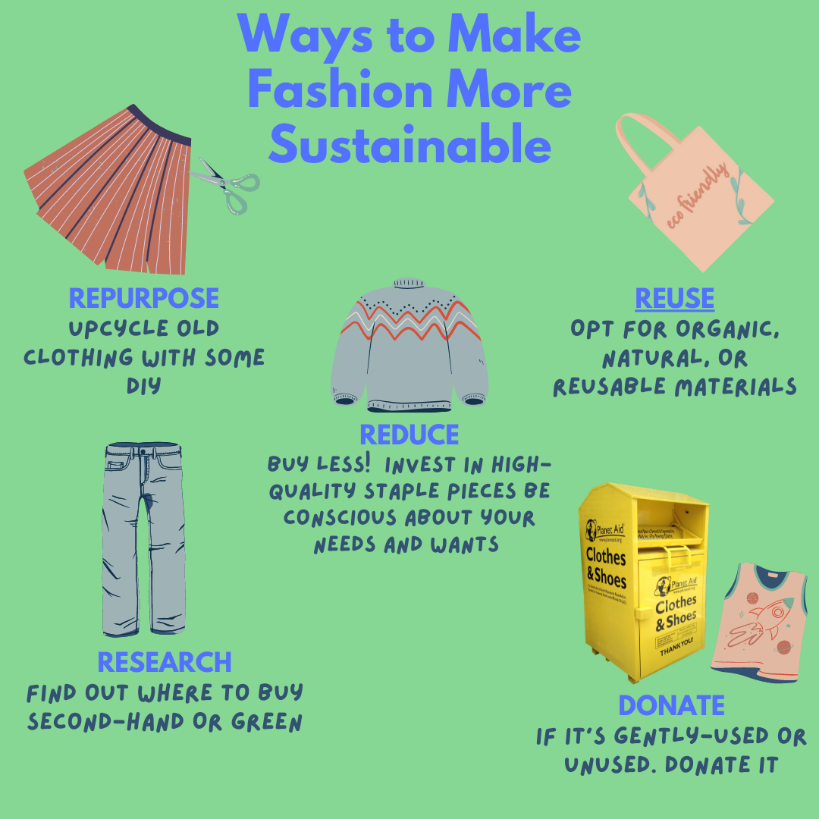What's the big deal about textiles Planet Aid?
The environment is sort of a HUGE thing with us at Planet Aid. Why? Well, it's in our name, we're big on aiding the planet, and the environment has a lot to do with the conditions and quality of living experienced by people around the world.
Waste is a global problem and it will not get better unless we make a decision to do better. It's not an overstatement to say that there are some who live amongst waste daily while many others experience the effects from the abundance of microplastics flooding our oceans or the chemicals that saturate the air and ground from textile production.
Textiles are cloth or woven products, and the mass making of these products is rarely environmentally friendly. Chemicals used in the production of clothing and shoes cause the emission of greenhouse methane gas during the centuries-long process of decomposing in landfills. Fast fashion is a term referring to a high volume of trendy clothing produced and sold by the retail industry. This leads to mass waste. Even though we know that waste is inevitable, how we deal with waste, on a personal level, is a choice.
As global citizens, we are not nations unto ourselves so our decisions have consequences. Some of those consequences end up in landfills when it's completely avoidable.
Let's reconsider what we call waste especially if it can be reused or recycled. It may take an investment of time but the returns will be so great and far-reaching. So what can we do? Simple… we can recycle, reuse, reduce, repurpose, research—and here's our personal favorite—donate.

Recycling is not a new word to most of us living on planet earth. Those aluminum cans, those plastic bottles, those paper products are just a few things many of us have been recycling for years. A recycled item is turned into raw materials in order to become a completely new product.
Reusing may take a little imagination but it recognizes the added value in using an object repeatedly. Did you know that you can make planters out of plastic water bottles, old tires or wine bottles? You can even use your old leggings as a head wrap without having to sew a stitch. Seriously! The sky's the limit for reusing. An example of this is taking your own reusable bag to the store to pack your groceries or bringing your own cup for coffee.
Reducing the amount of textiles that end up in a landfill may very well be a matter of choosing to be content. After all, how many pairs of shoes do any of us really need? Now, if you need 100 pairs of shoes in your closet, no one is judging you. You can make your impact in some other area. However, you might find that consuming more clothing, shoes, linen and other textile products is not truly necessary for your lifestyle. It's more a habit than a happy place.
Repurposing or upcycling clothing is happening more and more and creative types are leading the way in this fashion challenge. It takes a good eye and conscious mind to see the diamond in the dunghill because items that are worn or have stains still have loads of value. The areas with defects can be removed leaving a perfectly viable amount of usable fabric, which can be turned into children's clothing, purses, patches, quilts, or whatever the creative mind can dream up.
Researching is of the utmost importance so you won't be misled. Nobody wants to believe they are making conscientious choices to support sustainable products only to find out it's not true. Upon researching, you may find that your textile purchase is not eco-friendly and the seller's sustainable claims are what is referred to as greenwashing. (The term "greenwashing," as defined by Oxford Languages, is the disinformation disseminated by an organization so as to present an environmentally responsible public image)
Donating is one of the simplest ways to let your clothing have a second life. When you donate to Planet Aid, some of the donations may travel to another part of the world and go to resellers with secondhand clothing businesses and others end up at the Planet Aid Thrift Store in Rockville, MD. Either way, these textiles stay out of the landfills longer, which means less environmental impact for everyone. If you don't have a Planet Aid in your area, consider donating with Give Back Box. You can donate up to 70 pounds of your unwanted or underused clothing, shoes, or household items.
Just keep in mind, fast fashion—though inexpensive—is quite costly in its long-term effects. For more information about what you can do to slow the cycle of fast fashion, visit us at PlanetAid.com.
